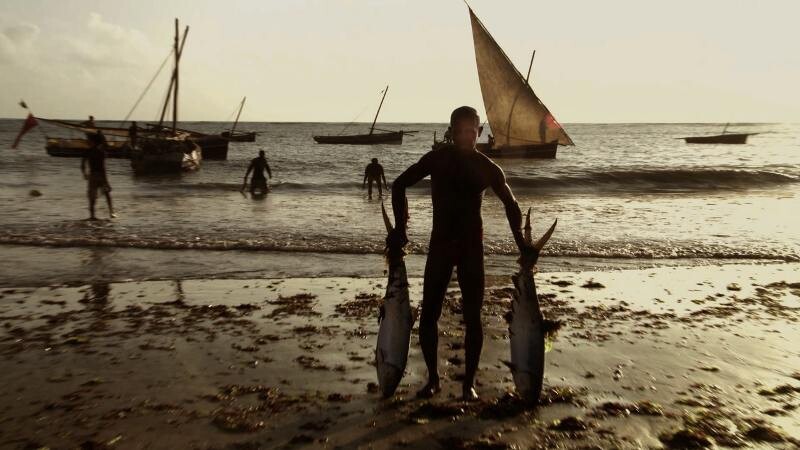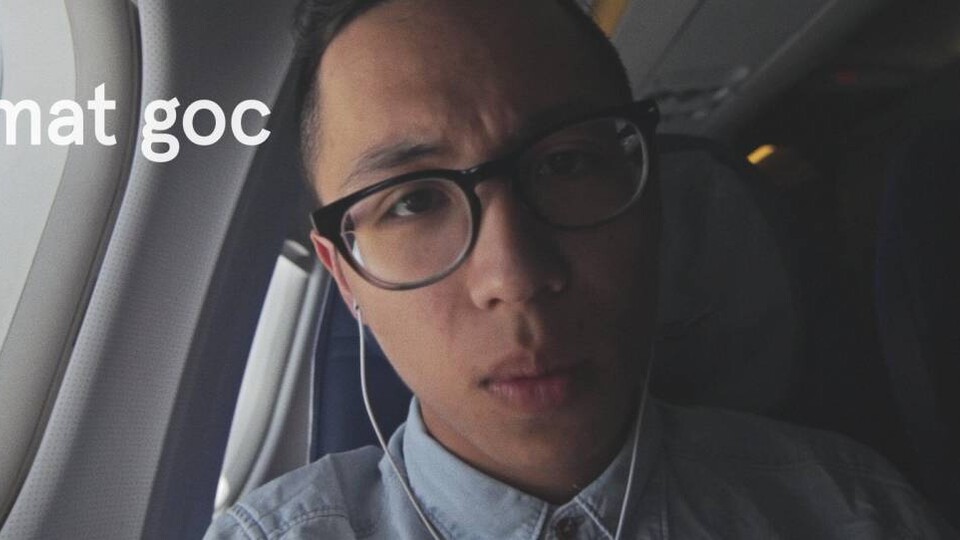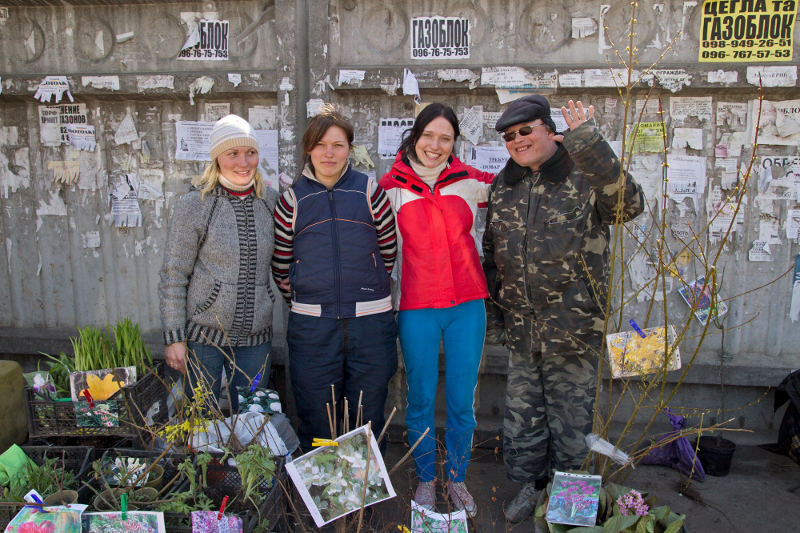In The Captivity of Fake Pirates
David Čálek went to Africa to film a documentary about modern piracy. The portrait of Somali pirates took an unexpected turn when the film crew discovered that in addition to piracy in Somalia there is a far more interesting and completely hidden business starting up in Kenya.
You've dealt with various topics such as BDSM communities, Chechen refugees and now you’ve covered Somali pirates in your documentary work. Do you see a common denominator in your work?
The common denominator of movies that interest me and that I will always strive to make is to tell the story of a person or community which is being looked at differently by the people close to them or by society, differently compared to what I think they deserve. I try to discover another side of these people, who are not being covered by the media or to whom the world is indifferent.
How did you find pirates for the first casting? Why were you looking for them in Kenya and not directly in Somalia?
The track that we were following was in Kenya. The key contact we had, a so-called "fixer", knew pirates who were hiding and lived in Kenya. We thought it would be more interesting to follow the footsteps of refugees fleeing from Somalia because they had some money or because someone was chasing them, rather than to watch those on the Somali shores. The first facilitator that we had a contact for, at the very beginning of the film, was given to us by someone at Reuters. He brought us our first pirates; we had about thirty of them to start. Some of them might have actually been real pirates, but our local contact quickly realized that without knowledge of the language, we were not able to find out who was a pirate and who wasn’t. That is how he started fixing us up with boys who were "only" good storytellers.
How did you cope with the fact that other than pirates who attack people in Somalia, there are pirates who ambush journalists in Kenya?
When we found out that the dangerous pirates, with whom we were shooting, were in fact actors from the slums of Kenya, we were in shock, but what was far more interesting, was the fact that we were not the only ones whom they had made fun of. Just as they had deceived us, they had deceived even bigger fish. For example, Channel 4 or a Danish filmmaker who filmed an investigative documentary that was broadcast worldwide. When we took a look at them, we found out that among the “dangerous pirates” there was a man who ran the whole operation and had probably never been at sea. His name was Bashir and he posed as a pirate even in a renowned media such as Time.
How did the mentioned media react when they learned that they were the victims of fake pirates?
We did not want to open the subject ourselves; so that it wouldn’t sound as if we were hurt because someone tricked us, so we presented the topic to the Czech Television (CT). We approached Channel 4, but to this day nobody has responded. They knew well that no matter what they say, they will come out looking bad. The only person to respond was the secretary of the Danish director Rasmus Krath, who said that something like this could have happened, and that it can be avoided only with difficulty. If CT had pressed the matter with Channel 4 further, it could have caused international fireworks, as they fill their airtime with pieces from Jamal Osman regularly.
Ultimately your film is more on investigative journalism and not fake pirates. Has it changed your opinion on media in general?
When we were wrapping up shooting the film Jamal Osman from Channel 4 came to shoot a piece about our movie. In his reportage he claims to have been the one to reveal the real story of pirates to the Czech filmmakers. Before our eyes with our cameraman he shot a scene where our Kenyan translator told him the story of how he attacked ships, simply because they had little time and could not get anyone else, it was bedlam. I realized that it only matters that you have a story that’s juicy enough. It then doesn’t matter whether the person was at sea. It’s important only that he speaks. Rather than about the pirates, our film is about the media, which skews human misery as it sees fit mainly to attract viewers.
You started filming in 2010, what was the approach to the topic then and what is it now ?
Now, that there is a blockbuster about piracy (Captain Phillips, 2013), the documentary does not interest anyone. In 2010, when we started, we had exclusive interviews with pirates that nobody else had. Despite this we had problems financing the film. The problem lies in the development, which lasted too long – meanwhile a lot of other documentaries on pirates were created. We also worked with a small budget, unlike the BBC, National Geographic or Discovery Channel, who send a whole crew and they do not care how much they pay in bribes. It took a long time before we got grants to develop the film. It is always difficult to gage the level of interest for a specific topic. It is always changing. It is the same with the Ukraine topic now. There was a time when it interested everyone, but now it is difficult to break through with this topic.
|
|
David Čálek studied Cinematography and Documentary Film at FAMU. As a cameraman he marked his first success with his thesis film, The Touch of Paintings (Dotek obrazu, 1998). Later, he participated on many feature and documentary films, for example Searching for Ester (Pátrání po Ester, Věra Chytilová, 2005). He is the director of the documentary Heaven, Hell (Nebe, Peklo, 2010) on the BDSM community, which was presented at the Jihlava festival and won the student award for documentary films at the Plzeň Finále. As a cameraman he worked on the film by Bejamin Tuček Plan (Plán, 2014), which along with the film Pirating Pirates is in the main competition of the Jihlava festival. Alongside Matej Cibulka he worked on the new film by Alice Nellis Auditioning For Parenthood (Adopce, 2014). |
This interview was published full-length in Czech in the festival newspapers IDDF Ji.hlava, dok.revue F01.
Translated by Floriana Skorulska




